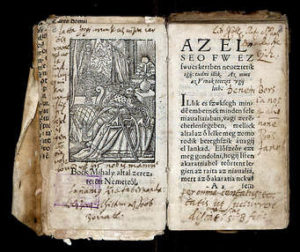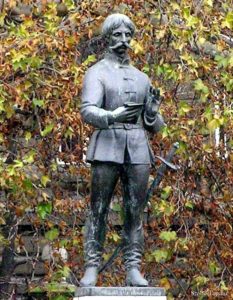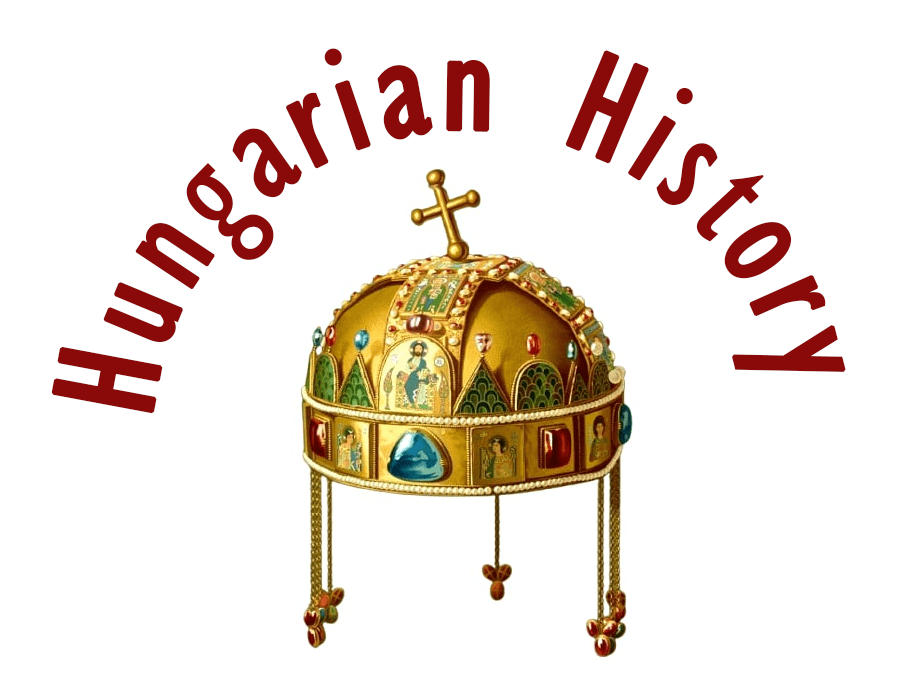Balassi Bálint (1554-1594)

Baron Balassi Bálint de Kékkő et Gyarmat (Hungarian: Gyarmati és Kékkői báró Balassi Bálint, Slovak: Valentín Balaša; 20 October 1554 – 30 May 1594) was a Hungarian Renaissance lyric poet. He wrote mainly in Hungarian but was fluent in eight other languages: Latin, Italian, German, Polish, Turkish, Slovak, Croatian, and Romanian. He is the founder of modern Hungarian lyric and erotic poetry. Please note that in this article, as in most of my writings, I use the Oriental name order for Hungarian names, with the surname coming first. The old eagle’s nest of the Balassi (or Balassa) family was the castle of Kékkő (Modrý Kameň), here is more about this castle:
https://www.hungarianottomanwars.com/kingdom-of-hungary/kekko/
Balassi was born in Zólyom in the Kingdom of Hungary (today Zvolen, Slovakia). His father was Balassa János, the captain of Zólyom Castle. Bálint was educated by the reformer Bornemissza Péter and by his mother, the highly gifted Protestant zealot Sulyok Anna. It is interesting to note that Balassi Bálint was related to the famous captain of Eger, Dobó István because Dobó’s wife was called Sulyok Sára. Similarly, he was related to Bocskai György, whose wife was Sulyok Krisztina: their son, Bocskai István, later became the prince of Transylvania.

His uncle was Balassa Menyhárt, the infamous but brave knight who changed sides nine times between the Kingdom of Hungary and the Principality of Transylvania but won great victories against the Turks. (Note, you can read more stories about the Balassi family and Kékkő Castle in my books.) Here you can read about Lord Balassa Menyhárt’s battle at Szalka in 1544:

As we can see, he came from a family of warriors, where everyone was a member of the Valiant Order, who fought against the Ottoman Empire on the edge of the Borderland. Bálint had a younger brother named Ferenc, who also lost his life in battle against the Ottomans, you can read more about him here:
https://www.hungarianottomanwars.com/essays/balassi-ferenc/

Bálint’s father and his uncle, Dobó István, were arrested by the Habsburg king in 1569, and Bálint and his family had to flee to Poland. Balassi Bálint’s first work was a translation of Michael Bock’s Wurlzgertlein für die krancken Seelen (published in Kraków) to comfort his father during his Polish exile. After his father’s rehabilitation, Bálint accompanied him to court and was also present at the coronation diet in Pozsony (Bratislava, Pressburg), the capital of the Kingdom of Hungary in 1572. At the festival following the coronation of King Rudolf, the 18-year-old Bálint attracted the attention of the court with his unique ‘Hajdú dance’.

In 1575 the Turks took the family’s castles, Kékkő and Divény. It was the time when Lord Bekes Gáspár, with the help of the Habsburgs, tried to usurp the throne of Transylvania. Bálint was sent to the camp of Lord Bekes Gáspár to help him against Báthori István (Stephen, Prince of Transylvania), but on the way, his troops were encountered and scattered, and he himself was wounded and taken prisoner. Balassi’s imprisonment was not very severe, but it lasted for two years, during which he accompanied Báthori to his coronation as King of Poland. He returned to Hungary soon after the death of his father, Balassi János.

He then joined the army and, as an officer, fought against the Turks at the fortress of Eger in north-eastern Hungary. Here, in 1578, he fell desperately in love with Lady Losonczi Anna, the daughter of the famous captain of Temesvár, and his verses suggest that his love was not unrequited. But after the death of her first husband, she gave her hand to another nobleman, Ungnád Kristóf.
Of course, Balassi only realized how much he loved Anna when he lost her. He pursued her with gifts and verses, but she remained true to her pique and her marriage vows, and he could only enshrine her memory in immortal verse. Soon after, Anna followed her husband to southern Hungary because he had been appointed Bán (Duke) of Croatia. Meanwhile, Bálint was a lieutenant of 50 hussars in Eger and took part in several raids and ambushes.

Balassi served at Eger until 1582. He had many court cases during his life, being accused of brawling and violence against women, not to mention his alleged crimes against other people’s property. However, many of these crimes were only accusations. In 1584 he married his niece, Dobó Krisztina, the daughter of the brave commander, Dobó István of Eger. This was the cause of many of his later misfortunes. His wife’s greedy relatives nearly ruined him through legal proceedings, and in 1586 he and his wife embraced the Roman Catholic faith to escape their persecutions, as Bálint was even accused of becoming a Muslim. He had a son with his wife, named János.
Balassi’s desertion of his wife and legal troubles led to a few years of uncertainty, but in 1589 he was invited to Poland to serve in the impending war with the Ottomans. This did not happen, and after a spell at the Jesuit College of Braunsberg, Balassi returned to Hungary in 1591, somewhat disappointed. He joined the army in 1593 during the 15 Years War and fought to retake his family’s old castles, Divény and Kékkő. He died at the siege of Esztergom-Víziváros in 1594 as a result of a severe leg wound caused by a hook gun. He is buried in Hybe in Slovakia. You can read more about his heroic death here:

Balassi’s poems can be divided into four categories: hymns, patriotic and martial songs, original love poems, and translations from Latin and German. They are all highly original, extremely objective, and stylistically so excellent that it is difficult to imagine him as a contemporary of Tinódi Lantos Sebestyén and Ilosvay Péter. The list of Balassi’s military exploits includes duels, raids, and ambushes similar to those of the Knights of the Valiant Order who served in the Borderlands. Read more about the Valiant Order here:
https://www.hungarianottomanwars.com/essays/members-of-the-valiant-order/
In Magyar (Hungarian) literature there is nothing like Balassi’s poems in terms of beauty, feeling, and transporting passion until we come to the age of Csokonai Vitéz Mihály and Petőfi Sándor in the 18th and 19th centuries. Balassi was also the inventor of the stanza that bears his name. It consists of nine lines a b c c b d d b or three rhyming pairs alternating with the rhyming third, sixth, and ninth lines. He also translated poems and songs into Turkish.

Balassi’s legacy is cherished by many institutions and schools in Hungary, but let me tell you about the Balassi Bálint Memorial Sword Award, a European literary prize that has been awarded in Budapest since 1997. The original form of the name is Balassi Bálint-emlékkard. The prize commemorates Balassi Bálint as it is awarded annually to an outstanding Hungarian poet and to a foreign poet for outstanding translation of Hungarian literature, including the works of Balassi. The sword itself is a replica of the sabers carried by the Hungarian cavalry during the sieges of fortresses in the 16th century. It is the work of a contemporary swordsmith. The prize is awarded every year on Valentine’s Day, 14 February, in the city of Buda.

Initially, only Hungarian poets were awarded the Balassi Sword, but since 2002 a foreign literary translator has also been honored each year. Since then, the committee has seen the Balassi Sword as a literary prize with a European dimension. However, Asian and American poets have also received the award, making it a global prize.

Let me share with you one of Balassi’s songs, translated into English by Joseph Leftwich. I am also adding the original Hungarian lyrics. You can listen to it by clicking here, sung by Kátai Zoltán:
https://www.youtube.com/watch?v=ClDNIc6ZWoo
Soldiers’ Song (English)
1.
Soldiers, what finer worth
is there upon this earth
than the borderlands can show?
Where in the time of Spring
beautiful birds all sing
setting our hearts all aglow –
the fields have a fresh smell
where dew from heaven fell,
delighting us through and through!
2.
Let the foe but appear –
brave soldiers have no fear,
their hearts are roused by battle.
High-spirited they rise,
and shouting their war-cries
quickly they prove their mettle.
Some fall, wounded or slain,
but the foe flees again –
our lads have suffered little.
3.
Banners and gory spears
each one of our men bears
riding in the army’s van.
They dash like the sharp wind,
footmen follow their lead,
for such is the battle plan.
Pommels of leopard hide,
gleaming shields at their side
hang beside each crested man.
4.
Arabian steeds – dash, fly,
heeding the trumpet cry,
then, those standing sentinel
dismount, and with swords drawn,
wait until the new dawn.
When night on the battle fell,
the soldiers, tired and spent,
go to sleep in their tent
for a brief refreshing spell.
5.
For honour and good name,
for manhood and for fame,
they leave everything behind –
they give up all they own
nobly, and quite alone,
staunch models of humankind –
like hunting hawks they fly
across the smoke-stained sky,
of the wind they one remind!
6.
So when the Turks they spy,
joyous, give battle cry,
wielding lances gallantly.
Should the odds prove too great,
sharply they turn and wait,
though blood-drenched, unflinchingly
fall on the chasing foe
and strike them, blow for blow,
routing them victoriously.
7.
Open fields and grottoes
are the spots where each goes,
to lay ambush on the road –
fighting hard night and day
is their work and their play,
they crave battlefields and blood;
thirst and hunger’s their treat,
they do not dread the heat,
this, their life, they find is good!
8.
Loving their soldier’s trade,
they wield their trusty blade,
to roll heads down on the ground!
Many men met their doom,
eaten by wild beasts, soon
after they were slain. And ‘round
now come hungry vultures,
carnivorous creatures –
such reward their bravery found!
9.
Braves of the Borderland,
noble and glorious band!
Warriors of grand repute!
Through the whole world your name
has won honour and fame,
like rich orchards ripe with fruit.
With good luck and riches
may God fill your britches –
may God’s boon be absolute!
There is another interpretation of this song, by the Misztrál Band; I think it is more Eastern-like, consisting of more south-Slavic tunes. Here it is:
https://www.youtube.com/watch?v=VUeKKgQP960
Egy katonaének (Hungarian)
1
Vitézek, mi lehet ez széles föld felett
szebb dolog az végeknél?
Holott kikeletkor az sok szép madár szól,
kivel ember ugyan él;
Mező jó illatot, az ég szép harmatot
ád, ki kedves mindennél.
2
Ellenség hírére vitézeknek szíve
gyakorta ott felbuzdul,
Sőt azon kívül is, csak jó kedvébűl is
vitéz próbálni indul,
Holott sebesedik, öl, fog, vitézkedik,
homlokán vér lecsordul.
3
Veres zászlók alatt lobogós kopiát
vitézek ott viselik,
Roppant sereg előtt távol az sík mezőt
széllyel nyargalják, nézik;
Az párduckápákkal, fényes sisakokkal,
forgókkal szép mindenik.
4
Jó szerecsen lovak alattok ugrálnak,
hogyha trombita riadt,
Köztök ki strázsát áll, ki lováról leszáll,
nyugszik reggel, hol virradt,
Midőn éjten-éjjel csataviseléssel
mindenik lankadt s fáradt.
5
Az jó hírért, névért s az szép tisztességért
ők mindent hátra hadnak,
Emberségről példát, vitézségről formát
mindeneknek ők adnak,
Midőn, mint jó rárók, mezőn széllyel járók,
vagdalkoznak, futtatnak.
6
Ellenséget látván örömmel kiáltván
ők kopiákot törnek,
S ha súlyosan vagyon az dolog harcokon,
szólítatlan megtérnek,
Sok vérben fertezvén arcul reá térvén
űzőt sokszor megvernek.
7
Az nagy széles mező, az szép liget, erdő
sétáló palotájok,
Az utaknak lese, kemény harcok helye
tanuló oskolájok,
Csatán való éhség, szomjúság, nagy hévség
s fáradtság múlatságok.
8
Az éles szablyákban örvendeznek méltán,
mert ők fejeket szednek,
Viadalhelyeken véresen, sebesen,
halva sokan feküsznek,
Sok vad s madár gyomra gyakran koporsója
vitézül holt testeknek.
9
Óh, végbelieknek, ifjú vitézeknek
dicséretes serege!
Kiknek ez világon szerteszerént vagyon
mindeneknél jó neve,
Mint sok fát gyümölccsel, sok jó szerencsékkel
áldjon Isten mezőkbe!

Dear Readers, I can only make this content available through small donations or by selling my books or T-shirts.
If you like my writings, please feel free to support me with a coffee here:
You can check out my books on Amazon or Draft2Digital, they are available in hardcover, paperback, or ebook:
https://www.amazon.com/dp/198020490X
or at https://books2read.com/b/boYd81


My work can also be followed and supported on Patreon:


https://hungarianottomanwars.myspreadshop.com/all

